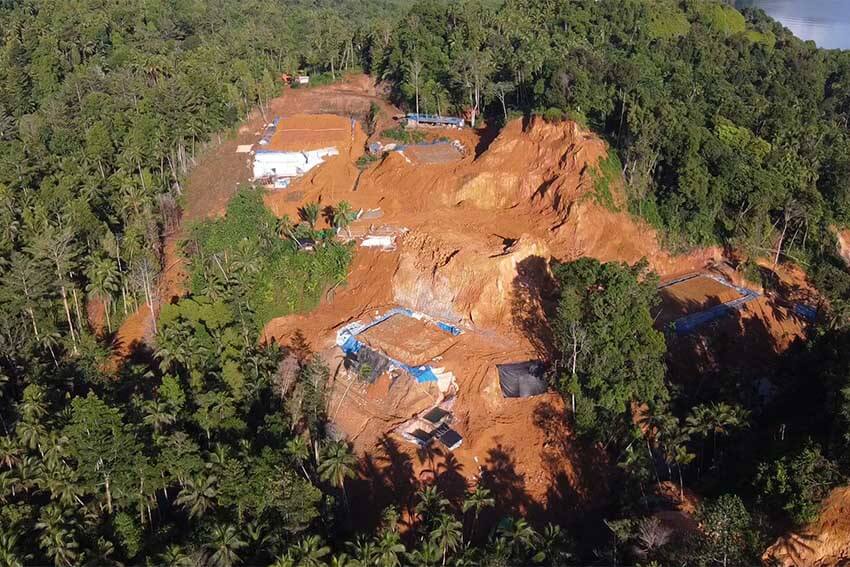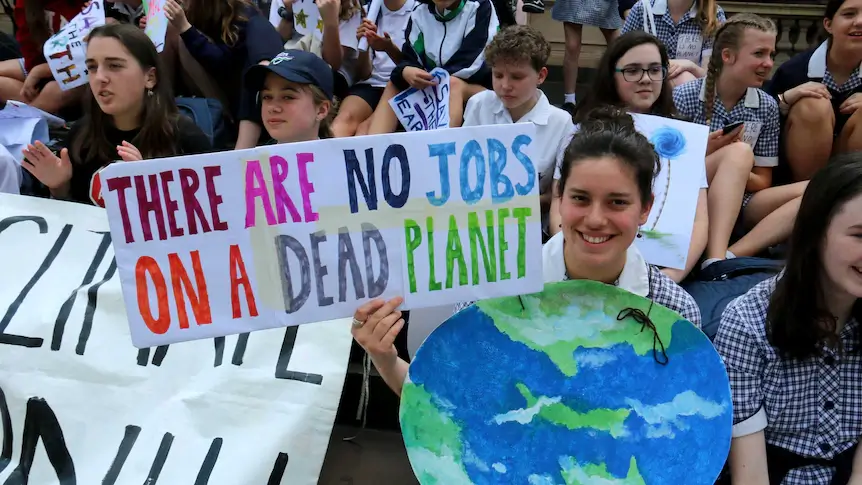Welcome to HPSN Article Series 2! Previously, we discussed various Indonesian waste-type problems. We know that this issue urgently needs to be solved before the environmental damage becomes irreparable. When it comes down to it, waste management strategy is the key.
To solve waste problems, each individual has an important role to follow a sustainable lifestyle. However, there is an equally important role: the role of the innovators that develop various creative innovations in industrial-scale waste management. Their innovations are the implementation of sustainable consumption and production through a circular economy. What are these innovations of waste management?
Waste Reduction Innovation

Waste reduction innovation is the front line of waste management innovation. Recently, various movements of organic or inorganic waste reduction propose convenience service through technology with big and wide impact. The innovation comes from Surplus, Food Cycle, and bulk stores.
Surplus and Food Cycle move to reduce food waste. Nonetheless, they apply different strategies. In tackling food waste, Food Cycle tries to solve hunger in low-to-middle socioeconomic class. They collect proper leftovers from the food industry and food donations, then, they donate the food to people in need. Whereas, Surplus reduces food waste by providing a platform for the users to buy and sell worth-consuming leftovers. The food industry sells the leftovers, then people can buy them on the platform. Those innovations bring a good impact to reduce food waste produced by food industrial or individual consumption.
Besides reducing organic waste such as food waste, we have to avoid inorganic waste production. The bulk store is the innovation that comes to reduce inorganic and organic waste production. Bulk stores sell daily necessities applying the zero-waste concept. Shop in bulk stores, we have to prepare reusable containers to place our purchase since they do not provide single-use packaging such as plastics (refill system). We have to bring our reusable shopping bags since they do not provide plastic bags. The items they sell are also eco-friendly. Shopping in bulk stores can avoid food waste because you can measure the food you need to buy.
Waste Collection Innovation
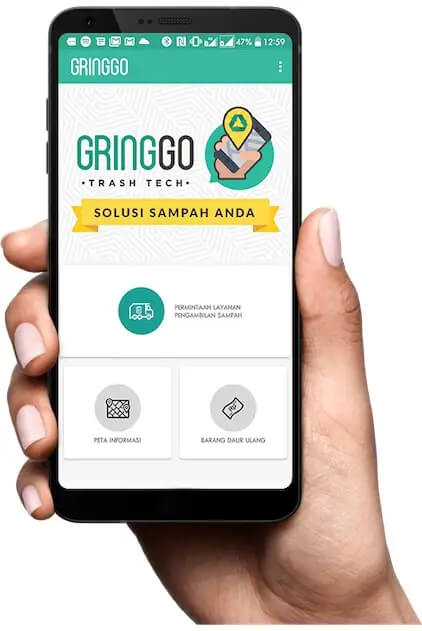
Recently in Indonesia, there have been a lot of innovations in waste management technology. The innovation presents waste management startups and waste collecting technology. Beyond collecting these waste, they also recycle the waste collected into valuable and functional things. They are Waste4Change, Gringgo, Mall Sampah, Reciki, Rapel, and so on who provide the waste processing service.
Although they move in the same field, they market to different sectors. For example, Waste4Change and Gringgo focus on domestic and business-to-business sectors. They manage waste from the public who join their service. They also serve companies to manage their waste. Particularly that focus on the domestic sector is Rapel who is ready to manage the clients’ inorganic sorted waste.
This innovation surely brings positive impacts. Waste can allow startup businesses to provide employment, profit, while the client receives profit through the waste barter. This also brings a good impact on the environment. Even though some startups are not capable of recycling waste, they still put an effort to recycle waste through collaboration with the waste recycling industry. Whereas, those who can recycle waste have succeeded in practicing the clients’ waste sorting behavior. Therefore, the startup can process the waste based on the waste sort.
Technology innovation also comes from Citarum Repair who creates a trash boom and solar-powered collector installed in the Citarum River, the dirtiest river in Indonesia, to avoid plastic in the river ending up in the ocean. Not only do they collect waste, but they also recycle the waste. In Bali, there’s also Sungai Watch who operate the same way. They succeeded in collecting 333 tonnes of river trash in Bali in 2021 by installing 105 trash barriers.
Organic Waste Recycling Innovation
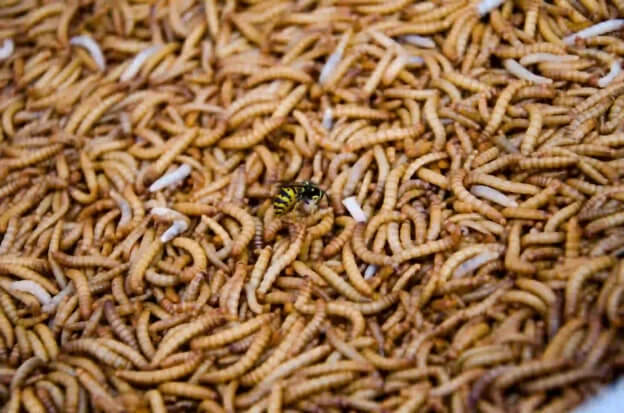
In the previous article, we learned that organic waste is the biggest in Indonesia. To solve this problem, we need many innovations and creative ideas of organic waste management that are embodied in action. Currently, composting and maggot cultivation are the stars of this sector.
Compost is an organic fertilizer made from organic waste such as food waste, wood, twigs, leaves, and grass through a biodegradable process using bacteria. The composting process is quite easy and quick. The process only took 1-3 months until it was ready to harvest.
The result of organic waste recycling into compost can be used on a domestic and industrial scale. On a domestic scale, we can use the compost for the plants in our home. Therefore, we do not need to buy fertilizer anymore. For industrial scale, it opens business opportunities by selling the compost on a wider market reach.
Besides compost, maggot is also a choice to process waste organic on an industrial scale. Maggot (Black Soldier Fly) is a larva that will metamorph to fly. Maggot cultivation highly contributes to the reduction of organic waste since 1 kg of maggots can eat 2kg up to 5kg of organic waste per day. If it is produced on an industrial scale, certainly, organic waste which is their food will be reduced.
Maggot cultivation is profitable since the cultivation process is easy and has high market demand because the protein contained in maggot is good animal feed. Multiply maggot cultivation can be a strategy to reduce organic waste naturally.
Plastic Waste Recycling Innovation
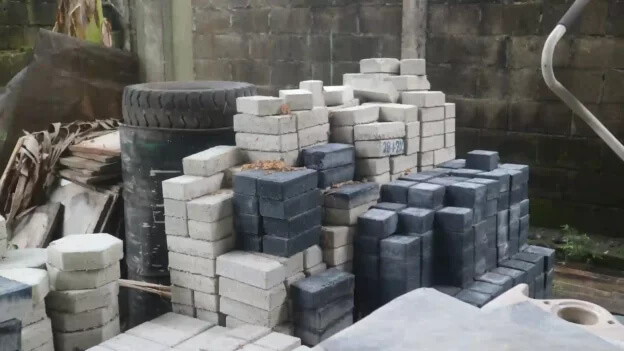
Following organic waste innovation, plastic waste processing innovations also occur. For example, plastic waste recycling to bricks (ecobrick). The making of ecobrick can be applied on a domestic and industrial scale.
On a domestic scale, we can make ecobrick by chopping plastic waste. Then, put them into a used plastic bottle to be compacted. Once you have enough, you can assemble these plastic bottles to make a chair, table, even a small house.
On an industrial scale, the plastics will be the mixture of bricks used to build an infrastructure. The plastic will be chopped by machine, then, it will be mixed into the cement. After that, it’s printed into various shapes of bricks such as hollow blocks and paving blocks. An example of an Indonesian company that produces ecobrick is Rebricks. Rebricks is capable of processing 17.500 kg of plastic waste into 10.000 kg of bricks.
The industrial sector has an important role and responsibility to the waste management system. This sector bridges the government and the society to solve the waste problem in Indonesia. Curious about how this sector presents itself in society?
Look forward to HPSN 3rd Article Series that will explore the role of the culinary industry in managing organic and inorganic waste. Have a nice read on the next article here!
This article is the 2nd article of Hari Peduli Sampah Nasional 2022 Series.


